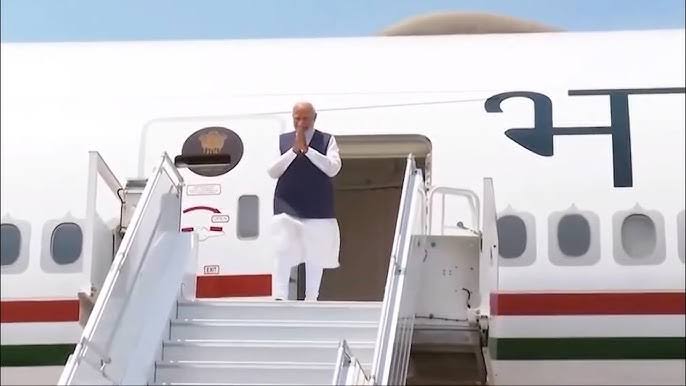Modi’s visit to T&T held up a mirror

By Vijay Ramlochan Penal
In July 2025, Trinidad and Tobago received its first official visit from an Indian Prime Minister in over 25 years. The significance of this moment cannot be overstated. Prime Minister Narendra Modi’s presence was more than a diplomatic routine. It was symbolic, emotionally resonant, and strategically progressive.
From a flurry of signed MoUs to an impassioned parliamentary address, this visit placed a bidirectional mirror before Trinidad. It reflected both where we are and what we might yet become.
Drawing from research I conducted in 2018 on psychological tipping points in civic transformation, I suggest that Trinidad now sits squarely in what might be called a T2 moment: a rare and fragile window in which disruption, identity realignment, and leadership tone can shift national behaviour in meaningful, lasting ways.
Building on the overwhelming mandate delivered at the recent election, this visit opens that window. The question is: will we step through?
The visit brought tangible outcomes. Nearly a dozen cooperation agreements were signed, covering key areas aligned with Trinidad and Tobago’s push for economic diversification:
Healthcare
Education
Agriculture
Digital governance
Infrastructure and energy
Culture and sports diplomacy
These aren’t vague promises, they’re frameworks waiting to be activated. But for them to become transformative and not just transactional, they must be placed within a broader psychological and national narrative.
The general election signalled deep fatigue with “business as usual.” The national mood, once dulled by hopelessness, has grown curious again. We are listening. We are watching.
Prime Minister Kamla Persad-Bissessar has begun to stimulate civic interest. But real transformation begins when engagement turns into marriage, when citizens become emotionally invested in their nation or community.
PM Modi’s visit, with its warmth, partnership, and direct people-to-people overtures, offered a disruptive but hopeful narrative. This is cognitive dissonance at work: old beliefs (“We are too small to matter,” “Global leaders don’t care about us”) now clash with new experiences. If we’re thoughtful, that discomfort can be harnessed as motivation for national change.
Perhaps the most powerful tool in societal transformation is social identity. When citizens stop seeing themselves as victims and start acting as civic contributors, something profound happens.
In Trinidad, something similar is quietly emerging but it is embryonic and vulnerable. That vulnerability lies in its susceptibility to narratives that distort reality beneath the fog of political war. Fog often stirred by the smouldering embers of post-colonial, racially polarised voting traditions.
Whether this shift evolves or collapses will depend largely on tone. How leaders speak, listen, and set the emotional temperature of a nation. Trinidad’s new Government has already hastened a substantial change: less defensiveness, more unity.
From PM Modi, the language of this visit was not merely bilateral, it was fraternal. With the Indian diaspora deeply woven into our national story, the symbolism of the moment reached further than economics. It reminded us that we are not forgotten. That we are partners in the Global South and worth investing in.
This re-framing is critical. When we see ourselves differently, we behave differently. Pride and ownership breed participation. Participation reduces apathy. These are the invisible currencies that turn policy into momentum.
Trinidad is not short on ideas, talent, or opportunity. What we often lack is alignment between how we see ourselves, how we act, and what we expect.
PM Modi’s visit was a gift. Not just in grants or goodwill, but in psychological potential. It held up a mirror.
Now it’s up to us to turn that mirror into a window.
We are almost there again. This time, let’s not miss the moment.




